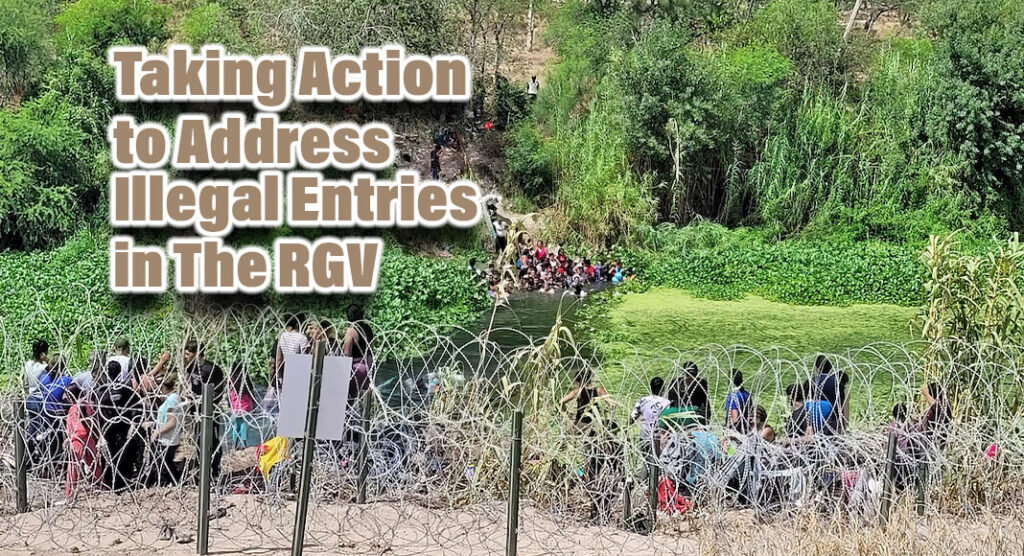
Texas Border Business
By Roberto Hugo González
Amid rising concerns over illegal crossings in the Rio Grande Valley Sector, the United States Border Patrol has reported a significant increase in such unauthorized activities. As of August 2023, more than 245,000 unauthorized entrants have been encountered attempting to infiltrate the United States through this sector, classifying it as an area of “high illegal entry.”
In response to this surge in illegal entry attempts, the Department of Homeland Security (DHS) is gearing up to implement extensive measures to address the situation. Based on the authority granted under section 102 of the Illegal Immigration Reform and Immigrant Responsibility Act (IIRIRA), additional physical barriers and roads are set to be constructed in the Rio Grande Valley Sector.
Congressional Funding and Presidential Proclamation:
The funding for this construction initiative will be sourced from the fiscal year 2019 appropriation where Congress had allocated funds specifically for the construction of a border barrier in the Rio Grande Valley. The DHS is bound by law to utilize these funds for their designated purpose.
Moreover, the proposed project aligns with the directives outlined in President Biden’s Proclamation (Proclamation No. 10142, 86 Fed. Reg. 7225 (Jan. 20, 2021)). This proclamation terminated the diversion of funds intended for the border wall from military or other unrelated projects. It simultaneously emphasized the necessity to spend the allocated congressional funds for barrier construction in a manner consistent with their appropriated objective.
Areas of Construction:
The specific areas marked for barrier construction and road development, falling within the vicinity of the border and situated in the State of Texas, are as follows:
• Falcon Dam’s south vicinity.
• Specific boundaries in the Lower Rio Grande Valley National Wildlife Refuge including Arroyo Morteros Tract, Las Ruinas Tract, Arroyo Ramirez Tract, Los Velas West Tract, La Casita East Tract, Villareales Banco Tract, and the Cuevitas Tract.
• Key intersections along U.S. Highway 83, Perez Road, Leos Road, North Redwoods Street, Trophy Street, Moonbeam Street, Los Olmitos Road, Farm to Market Road 1430, Mission Street, and Old Military Highway.
The determination of these specific areas stems from the recognition of their vulnerability to high levels of illegal entry and the immediate necessity for physical barriers and roads to curb these unauthorized incursions.
Moving Forward:
In line with sections 102(a) and 102(b) of IIRIRA, there is an expressed and immediate requirement for the development of physical barriers and roads near the United States border to restrict unlawful entries in the demarcated project areas.
To fast-track the barrier and road construction, the authority vested in section 102(c) of IIRIRA will be exercised, resulting in the waiver of several statutes pertaining to the project areas.
The enhancement of border security measures, in the form of barriers and roads, aims to significantly deter and reduce unauthorized crossings, ensuring the safety and security of the nation.
The Department of Homeland Security posted the announcement on the U.S. Federal Registry with few details outlining the construction in Starr County, Texas, which is part of a busy Border Patrol sector seeing “high illegal entry.” According to government data, about 245,000 illegal entries have been recorded so far this fiscal year in the Rio Grande Valley Sector which contains 21 counties.













